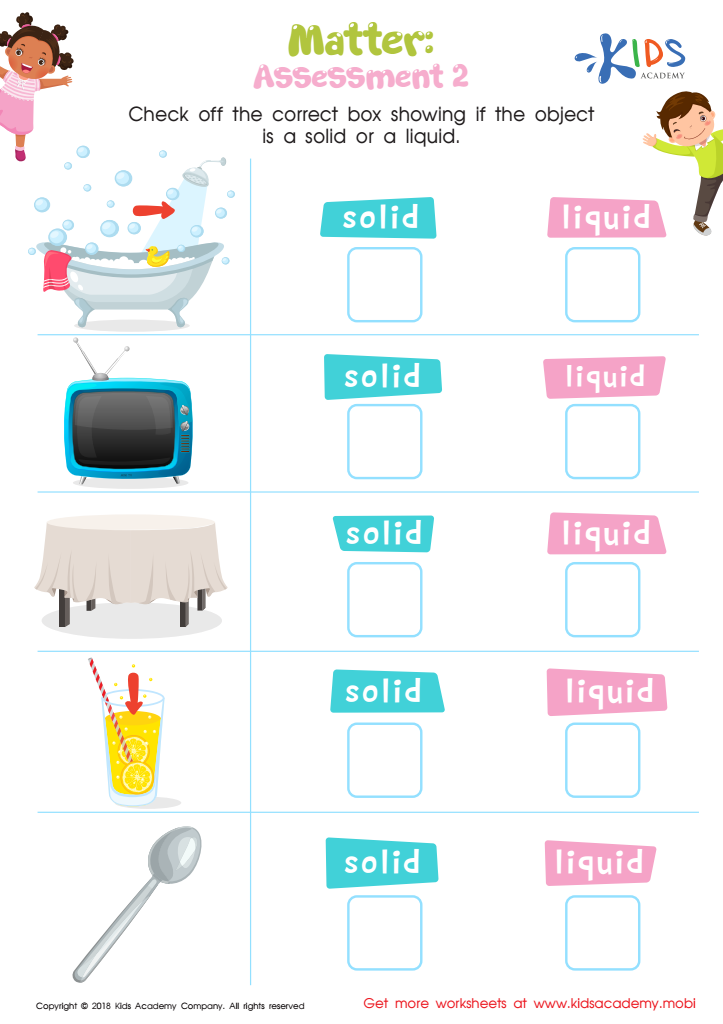Normal Science worksheets activities for 7-Year-Olds
9 filtered results
-
From - To


Animals and Plants: Assessment 2 Worksheet


Animals and Plants: Assessment 1 Worksheet


Ecosystems: Assessment 2 Worksheet


Ecosystems: Assessment 1 Worksheet


Space: Assessment 2 Worksheet


Space: Assessment 1 Worksheet


Light and Sound: Assessment 2 Worksheet


Matter: Assessment 2 Worksheet


Matter: Assessment 1 Worksheet
Normal science worksheets activities are an indispensable tool in the educational journey of students, especially when it comes to the field of science. These activities are designed to enhance the learning experience by providing a structured and interactive approach to understanding scientific concepts. Here's why they are so beneficial:
Firstly, normal science worksheets activities cater to a broad spectrum of learning styles. Whether a student is a visual, auditory, or kinesthetic learner, worksheets can be tailored to fit their needs, ensuring that every student has the opportunity to grasp the material fully. This versatility is crucial in a diverse classroom setting.
Moreover, these activities promote critical thinking and problem-solving skills. As students engage with the exercises, they are encouraged to think deeply about the scientific principles at hand, analyze data, and draw conclusions based on evidence. This active engagement with the material not only solidifies their understanding but also prepares them for real-world scientific inquiries and challenges.
Additionally, normal science worksheets activities provide immediate feedback to both students and teachers. As students work through the exercises, they can quickly identify areas where they may need further clarification or study, allowing for a more targeted approach to learning. For teachers, this immediate feedback is invaluable in assessing the effectiveness of their instruction and making necessary adjustments to ensure that all students are progressing.
Furthermore, these worksheets can make learning more enjoyable. By incorporating a variety of activities, such as crosswords, matching exercises, and diagrams to label, science becomes more than just memorizing facts; it becomes an engaging and interactive experience. This enjoyment can foster a lifelong interest in science and encourage students to explore the subject further.
In conclusion, normal science worksheets activities are a critical component of science education. They accommodate diverse learning styles, foster critical thinking, provide immediate feedback, and make learning fun. By integrating these activities into the curriculum, educators can ensure a more comprehensive and effective science education for their students.

 Assign to My Students
Assign to My Students




















